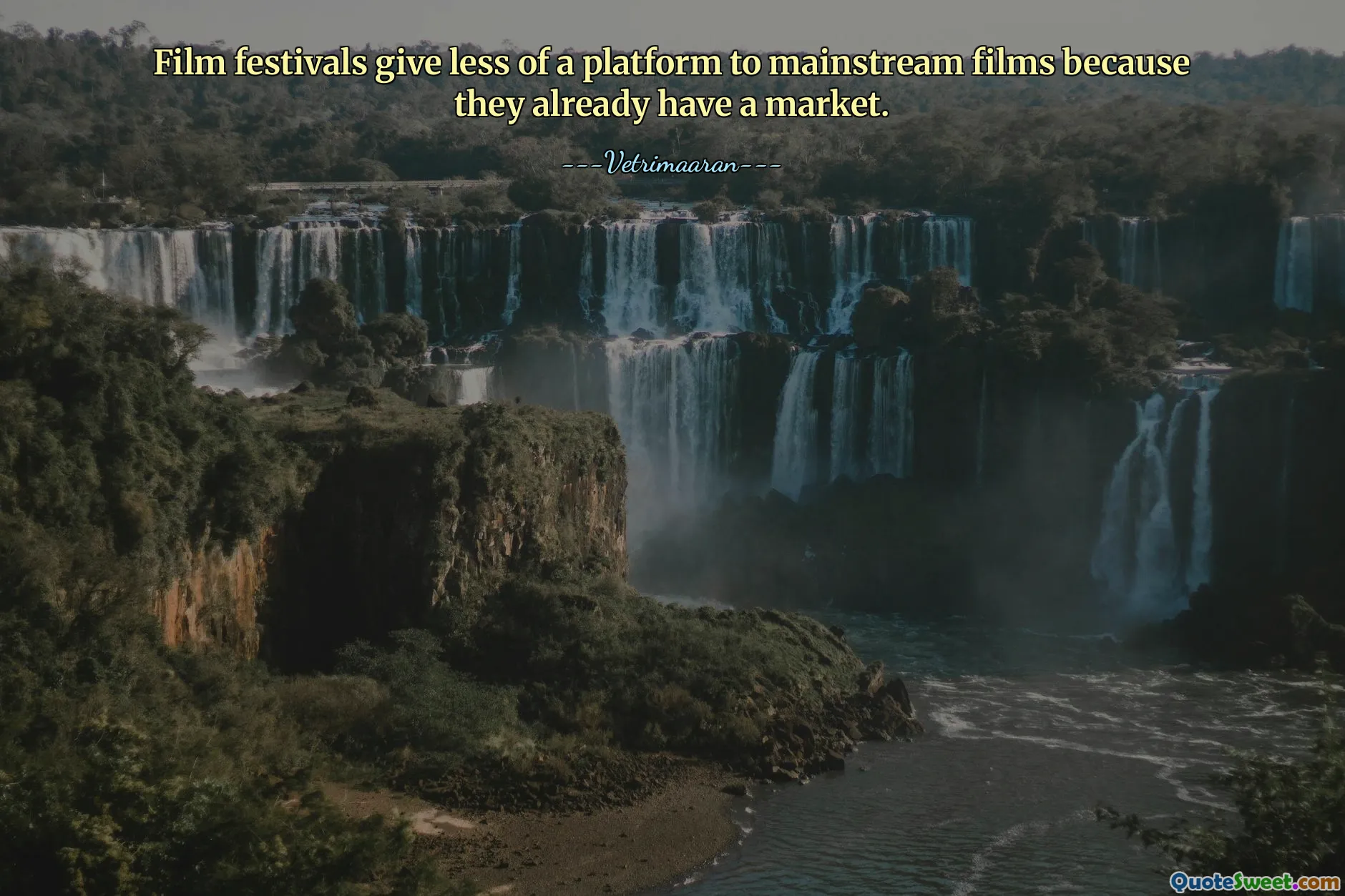
Film festivals give less of a platform to mainstream films because they already have a market.
The observation that film festivals tend to spotlight less mainstream, often independent, or experimental films is quite insightful. These festivals serve as essential platforms for filmmakers who may not have the backing of major studios but possess compelling stories and innovative approaches to cinema. Mainstream films, which are heavily marketed and distributed widely, often do not rely on festival exposure to reach audiences since they have established markets and distribution channels. This creates a dynamic environment where festivals function as incubators for diverse and unconventional voices in cinema, fostering creativity and supporting cultural diversity. For filmmakers, especially emerging ones or those working outside the commercial mainstream, film festivals offer invaluable opportunities for recognition, networking, and potentially critical acclaim that can propel their careers forward. For audiences and critics alike, festivals are curated spaces for exploration beyond blockbuster fare, providing a broader spectrum of artistic expression. The festival circuit's focus on less commercial projects helps preserve cinema as an art form and encourages innovation, enabling films that challenge norms and explore new storytelling techniques to find an appreciative audience. Conversely, the commercial success of big-budget movies means they do not need this platform for visibility, which naturally makes festivals more accessible to those outside the mainstream industry. Overall, this distinction underscores the vital role film festivals play in maintaining the vitality of diverse cinematic voices and supporting the evolution of cinema as both an art and an industry.








